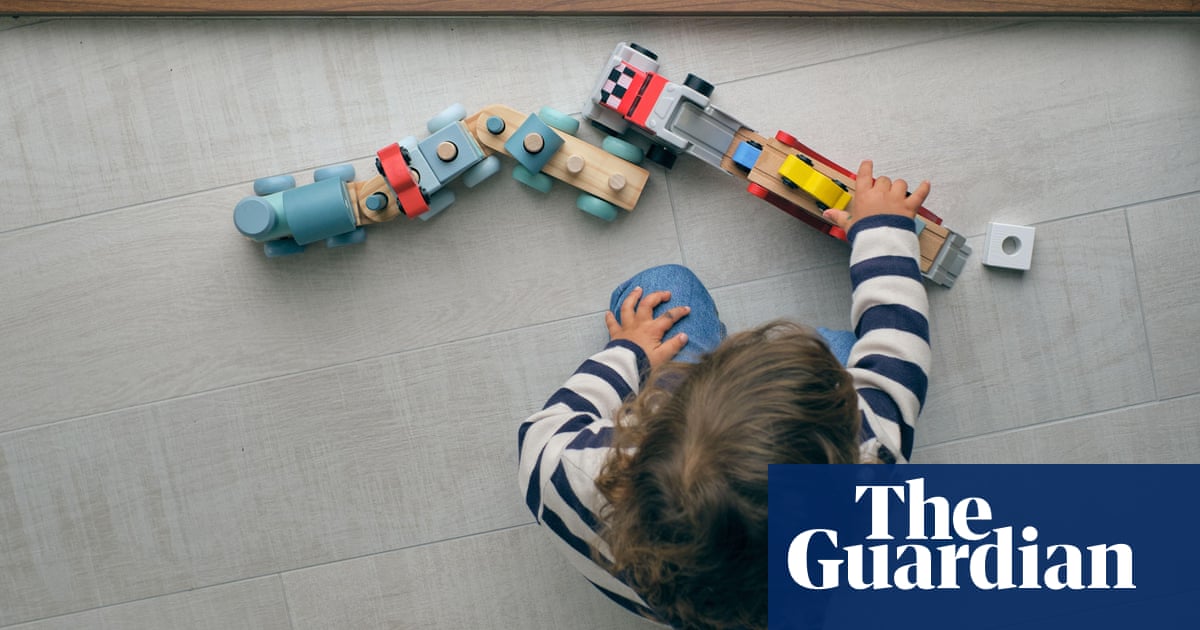A growing number of adopted children are at risk of returning to the care system as funding cuts and lack of support pushes England’s families into crisis, charities have warned.
Adoption UK said cuts to funding were already having a “devastating” effect on children who have been adopted, describing them as “morally and economically nonsensical”.
“We’ve had hundreds and hundreds of families call our helpline or come along to events to express their concerns. I’ve worked in adoption now for nearly 10 years, I’ve never seen anything like this,” said Alison Woodhead, the director of public affairs and communications at the charity.
“People have been saying they’re worried their children will commit suicide – families are at breaking point, and without support they’re worried that the family might not be able to stay together, that children will end up back in the care system.”
In April, the government announceda 40% cut in the amount availablefor each child from the annual £50m adoption and special guardianship support fund – money sent to local authorities and regional adoption agencies to provide therapy for adopted children.
Woodhead said it was a “crucial pot of money that has been transformational in lots of children’s lives” and the cuts would have a huge impact.
“It is both morally and economically nonsensical because these children who desperately need the support will cost more further down the track if they don’t get it,” Woodhead said.
“Adopted children are already massively overrepresented in criminal justice statistics, in not in education, employment or training statistics, do worse in school than their peers. It’s just setting the children up to fail further and symbolic of a general sense that adopted children are being let down.”
She also said the cuts could worsen the decline in adoptive parents in the country–from 2013 to 2023, the number of families approved to adopt in England decreased by almost 60%.
“The government is spending quite a lot of money on a recruitment campaign to try to get prospective adopters. But if the bigger picture is that you adopt a child, you don’t get support, and then your child ends up back in the care system, that’s not a very enticing prospect. So they’re also shooting themselves in the foot.”
The charity’s annual adoption barometer showed 38% of adoptive families were facing severe challenges or reaching crisis point in 2023, a rise from 22% in 2022.
The number of children who left their family prematurely (for example, to return to the care system or to live in assisted accommodation) was 7% that year, up from 3% in 2021, and the charity is expecting numbers to rise.
Tracy Beaumont, from Ridley & Hall solicitors’ adoption legal centre, said they were being inundated by calls from families across the country in “absolute crisis”, and seeking legal advice on returning their child to the care of their local authority.
“Many of the parents, unfortunately, they’ve tried everything. They’ve tried to get the support and the help, they’ve done absolutely everything, and they’re just at a point of crisis as a family,” she said.
She advises people on how to apply, through section 20 of theChildrenAct 1989, for the local authority to accommodate a child in need, a process which she says is “extremely traumatic” for those involved and a “last resort”. It can then lead to court proceedings for a care order.
“A lot of my clients think that it could have been prevented but obviously local authorities have limited resources anyway, and then the government have just cut the adoption support fund. They need the right support at the right time,” she said. “The parents are really traumatised by the whole experience, and then the poor children at the heart of this end up back in care.”
A Department for Education spokesperson said: “We know how important this support is to families – and through our plan for change, we’re committed to ensuring adopted and kinship families continue to receive the help they need to thrive.
“We are investing £50m for the adoption and special guardianship support fund to continue for another year with children still being able to access £3,000 in therapy support each year.
“The decisions we have taken will ensure the fund is financially sustainable to allow more vulnerable children to access targeted support.”
